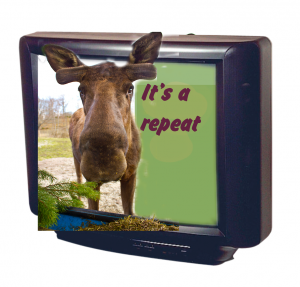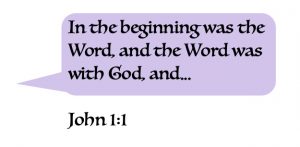If there is one thing that humanity has failed to learn, it is that money is not a meaningful measure of anything. Faced with a goal to achieve and offered a choice of unlimited money to throw at it or unlimited time to let a solution emerge from the woodwork, most of us would imagine that money would help us to solve any problem. The reality is nowhere near as clear as it first appears.
Money hires people’s time for a set period of time, but does not itself create any goods or services that can be made or delivered for a set time. There is a wider world of resources that are available for money under certain circumstances and/or purposes. But, once again, not everything falls into this category.
One thing you can’t buy is time. But, many thousands of years ago, the ancestors of the human race had more time than they knew what to do with and they used it to leverage their modest resources. During several millennia, they started to influence the local flora and fauna, clearing spaces with fire and attracting both prey species and fresh plant life. The size and number of habitable locations at this time was tiny, as the planet went through a series of ice ages. Only very localised corners of the globe could support life as we might imagine it might have existed at the time; places where volcanic activity kept permafrost at bay. In these rare pocket sanctuaries, lived the first generations of primitive species that would later leave their refuge and inhabit a warmer world. We will never know what sort of lives these creatures led, but we can be reasonably sure that money was not on the wishlist. Living hand to mouth in a remote but habitable enclave was no mean feat. We can only guess at what they did with their time on Earth, but it was probably much the same from one generation to the next.
Researchers reckon that there was a period of at least four millennia during which early humans and the natural world interacted. James C Scott argues that this period of inter-species preliminary contact probably lasted six or more millennia, spanning hundreds of generations on both sides. In his book Against the Grain, Scott warns that any linear notion of progress we might form in the comfort of the twenty first century has no place in prehistory. The chances are that there wasn’t even a word for it…


 As human populations settled, the first quality they lost was a deep awareness of a wider world beyond their existence. By leaving the land and settling in cities, humanity extinguished any remaining spark of interest in the outside world. This is just one of our nemeses emerging from the shadows. Others will catch us out sooner, but they lack the central importance of a planetary view of the natural world. Writing in Against the Grain, James C Scott reminds us that without the millennia during which prehistoric populations domesticated crops and livestock there would never have been agrarian city states. He also argues that such an important process need not be a linear progression, but that during those years human populations would have probably have lived by more than one activity, the exact combination of which would have changed with the prevailing conditions. Life in prehistory was difficult enough, without trying to stick to a linear progression from nomad to city dweller.
As human populations settled, the first quality they lost was a deep awareness of a wider world beyond their existence. By leaving the land and settling in cities, humanity extinguished any remaining spark of interest in the outside world. This is just one of our nemeses emerging from the shadows. Others will catch us out sooner, but they lack the central importance of a planetary view of the natural world. Writing in Against the Grain, James C Scott reminds us that without the millennia during which prehistoric populations domesticated crops and livestock there would never have been agrarian city states. He also argues that such an important process need not be a linear progression, but that during those years human populations would have probably have lived by more than one activity, the exact combination of which would have changed with the prevailing conditions. Life in prehistory was difficult enough, without trying to stick to a linear progression from nomad to city dweller.